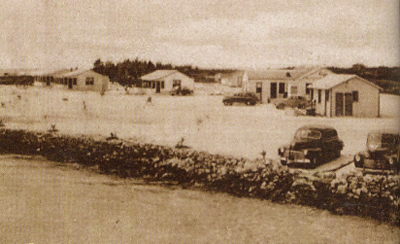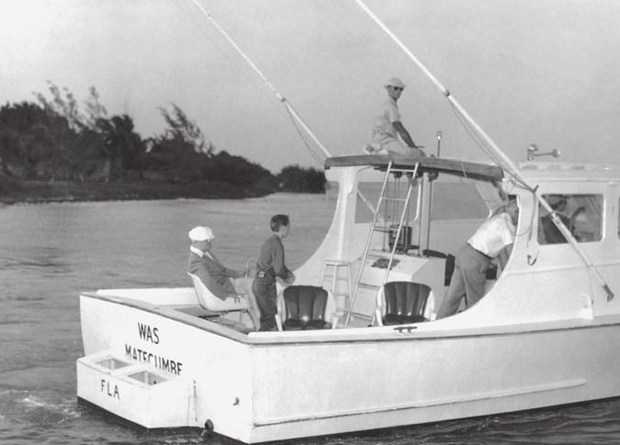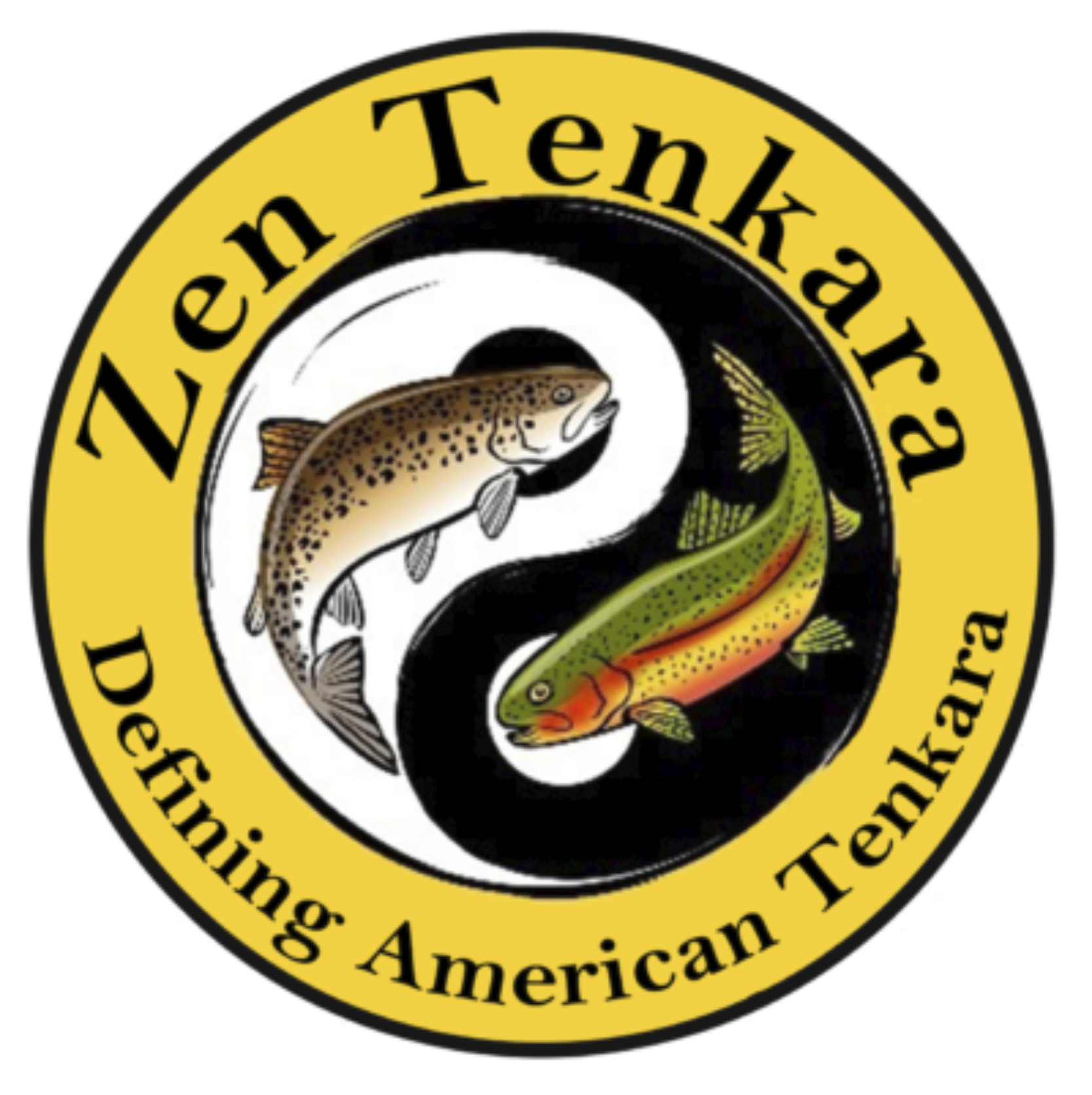Part 1 – Remembering Ruth and Buck Starck by Dr. Walter E. Starck
MARLIN Magazine made first mention of the charter fishing pioneers of the Florida Keys, Walter Starck and his son “Buck,” in their May 2010 issue. The story was titled, ISLAMORADA: Florida’s Wild Frontier by Jan Fogt (to read go to IGFA – Library). MARLIN magazine followed by publishing a story in February of 2011. It was written by Ruth and “Buck” Starck’s son Walter as a tribute to his parents on the occasion of their 79th wedding anniversary in 2010. Walter grew up fishing in the Keys, went to the University of Miami and then graduated from University of Miami’s famous Rosenstiel School of Marine and Atmospheric Science (RSMAS). Walter has been in Australia for decades serving there as a Marine Biologist. We tried contacting him through the science organizations he belonged to, but got no responses.
Jerry Wilkinson, founder of the Historical Preservation Society of the Upper Keys, added the following:
“Buck was a mate for his dad in 1928. They fished out of the Royal Palm Hotel, Miami – not certain when they began. In 1937, with the support of his dad, he and Ruth moved to the Keys and established a fish camp on northern Upper Matecumbe Key. Circa 1939, they bought the north Lower Matecumbe Key place. The three of them lived there, but kept the boats on Upper Matecumbe Key – they did the fishing and Ruth ran the camp. For me, all three are legendary. Buck and Ruth recently passed away. I did know where they moved from but have forgotten. One son lives in Australia (Dr. Walter Starck) and the other in Belle Glade, Florida.” Walter’s sister’s whereabouts is unknown. We were unsuccessful trying to contact Terry Starck.
The history of Florida Keys sportfishing pioneers:
As remembered by Walter Starck on the occasion of Ruth and Buck’s 73rd wedding anniversary on November 29, 2010.
NOTE: Both Ruth (1912) and Buck (1917) died within weeks of each other in 2010.
[dropcap]M[/dropcap]other and Dad, or Ruth and Buck to most of you, were special people. Their passing marks the end of an era. Their life spanned the century of greatest change in human history. They came to the Keys when it was a largely uninhabited frontier with almost no rules and saw it grow into the upmarket gated community it has effectively become today.
Unlike most old people, Mother and Dad did not tend to see the past as the good old days. In their view there were many good things in the past, but on the whole life is much easier now.
From early childhood Dad knew the Keys from frequent visits with his father who was a pioneer captain in the sport-fishing business beginning in the nineteen teens. In those days a handful of larger charter yachts operated out of Miami to offer extended fishing trips to the Keys. They each towed several launches and skiffs from which the actual fishing was done.
When once, as young teen age boys often do, Dad had a disagreement with his mother he decided to run away from home. Their home was in Miami and he had a small sailing boat at Coconut Grove. He took his boat and set out for the Keys to find his father who was away on a charter. He made it to Barnes Sound by the first night and anchored the boat just off a beach where he intended to sleep on the shore. It was a moonlight night and a few tall dead mangroves along the shore looked ghostly with scudding clouds intermittently shadowing them. A stiff breeze was blowing and balls of sea foam occasionally bounded away from the beach and across the foreshore to be swallowed up amid the dark mangroves behind. Dad decided the boat would be a better place to sleep and he spent the rest of the night wrapped in the sail trying to sleep folded up into the cramped uncomfortable space between the seats .
He found his father the next day anchored at Channel 5 between Lower Matecumbe and Long Key. This adventure earned him a place at the Riverside Military Academy in Gainesville GA, where, as he put it, he learned he wasn’t as smart as he thought he was. Among other things he also learned mathematics, for which he had an aptitude, history which he found fascinating, ethics which he saw as non-negotiable and self-discipline. Of the last, he maintained that doing things the easy way somehow always ended up being the hardest. Doing what needs to needs done, when it needs to be done and doing it right was always his way. He had little sympathy for complaints and none for self-pity. Shape up and do what you should do was always his attitude.
When the severe 1926 hurricane hit Miami, Grandad had guessed from the falling barometer and the wind hauling around that a storm was coming. He took his big boat up the river to a safer location while his fellow captains laughed and stayed at the Royal Palm docks at the river mouth. That night the storm blew the roof off their house but the boat was safe and those at the river mouth were destroyed.

The Starck family certainly had vision. The small piece of waterfront where they built a fishing camp in the late 1930s is now home to Whale Harbor, a large marina complete with charter fleet, restaurants and bars. Photo credit Terry Starck.
When the terrible storm of 1935 struck the Keys Dad was 17. He and his father came down to the Keys from Miami in a launch immediately after the storm passed. Many of their friends were gone and Dad said he saw many bodies along the shore of the islands.
A few years later in the late 1930s Dad and Grandad bought the Whale Harbor Fishing Camp. This consisted of several rental cottages, a bar, restaurant, service station and a dock with several charter boats. They had operated Whale Harbor for only a few years when World War II began.
In those days summer business was almost non-existent except for a few people from Miami fishing from the bridges on the weekends. Only the bar and service station were kept open at that time. One summer weekend several bikers were fishing off the Bridge at Whale Harbor. Two of them came into the bar, had a few beers and began to become abusive, The barmaid, a tough little lady from rural Georgia asked them to leave but they insisted on being served more beer and one threatened to come over the bar and get it if she wouldn’t serve him. She picked up an empty beer bottle by the neck and broke off the end in the concrete sink behind the bar. Holding the broken bottle she told him if he tried to climb over the bar he would get this in his face. They let muttering about getting someone and coming back.

President Harry S Truman, who served in office from 1945 to 1953, is seen in on the WAS wearing a white hat. Edward R. Morrow is also aboard. The WAS was retired in the mid-1970s. Photo credit Historical Preservation Society of the Upper Keys.
The barmaid came and told Dad and Grandad what had happened. They decided to simply close up to avoid any further trouble. In a short time the two bikers were back with a big mean looking guy who seemed to be their leader. Two came to the front door and started pounding on it and the big guy came to the back door. Dad went to the front and Grandad to the back door which opened into the kitchen. I was about 2 or 3 years old and ran after Grandad. When Grandad opened the door, the guy gave him an almighty shove and he fell back against a wall breaking his elbow bone and thus disabling one arm. The biker then headed toward a commotion coming from the dining room.
Grandad jumped up and grabbed a large jar of dried beans from an open shelf. With his good arm he hurled it with immense force from about 15 feet away just as the biker was pushing through the swinging door between the kitchen and dining room. The jar hit the guy’s head and exploded in a shower of glass and dried beans. He was down and out.
Grandad went into the dining room where Dad had his finger up one of the other biker’s nose and with the other gripping his hair was banging his head on the floor. I still remember Grandad saying, “Stop it Buck. You’ll kill him!” Dad stopped.
The third guy was lying on the floor by the front door trying to breathe where Dad had dropped him with a blow to the throat. Meanwhile, Mother was on the phone calling the only police in the Upper Keys a two man station in Rock Harbour. In a short time a big old time Florida Cracker cop arrived. He saw the sad condition of the bikers and said, “Waal, looks like you don’t need much help.”
Before Whale Harbor, Grandad’s charter work included trips to the Bahamas and sometimes north to New York in the summers . Growing up in this environment and working for his father on the boats, Dad had gained the sea time to sit for his Masters ticket. With his aptitude for math and tutoring from a retired master of celestial navigation in Miami, Dad had become very proficient at that art as well. When he obtained his masters ticket at 21 he was the youngest master mariner in the country.
When the War started licenced mariners were exempt from the draft as they were considered critical to the war effort. But, as they were in short supply in the military as well, a call was made for volunteers and Dad volunteered. Only a handful did, and at first they didn’t quite know what to do with them. For a time they had him teaching celestial navigation to airmen in New Orleans. But, soon the war effort began to expand and become better organized and he was needed elsewhere.
Most of the aircraft at that time did not have the range to fly nonstop across oceans. To deliver the aircraft needed in North Africa, the Mediterranean and southern Europe entailed a series of airfields from the Antilles, the Guyanas, and Brazil to Ascension Island in the mid-tropical Atlantic, thence on to Dakar in West Africa. Ascension was especially problematic as there were no checkpoints on the way. If an aircraft didn’t find it they were beyond the point of no return and would have to ditch into the sea. Ascension has no harbour and at first there was no means of rescue other than a chance find by a passing ship. The pilots had a song that went, “If you miss Ascension, your wife gets a pension?”
Dad was given the job of taking a small flotilla of purpose built rescue craft and converted fishing vessels down to Brazil and out to Ascension dropping off craft at various places along the way. On the way down they had stopped off in the Dominican Republic for fuel and supplies when a hurricane threatened. They were at a port in a river mouth on the south coast, a place which would have been dangerous in a storm. Dad remembered reading a translation of Columbus’ logs which recorded his sheltering from a storm in a very protected bay somewhere on the south coast of Hispaniola. He went to the town library and found an edition of Columbus’ logs. The protected bay was only a few hours away. In a rising wind and sea from the approaching storm he led the little flotilla along the coast and into a hidden bay that was just as Columbus had described
When the rescue vessels were all delivered, Dad was assigned to Ascension I. where he operated for a year. Long range search and rescue at sea had not been done before and he literally wrote the book in developing the techniques used. In the end 85% of the crews of aircraft ditched at sea in that theatre were rescued.
Although German submarines were sometimes in the area and they did rescue survivors from a sub that was sunk by aircraft, the greatest danger they faced was not the enemy but our own patrol aircraft. To pilots with little or no maritime experience, the long low air-sea rescue vessels with a flush deck and small wheelhouse amidships could look much like a submarine on the surface. On a number of occasion bombers with open bomb bay doors made bombing runs on them before realizing at the last minute what they were. On one occasion they were strafed and a crew member standing next to Dad on the bridge was shot through the hip.
After a year at Ascension, Dad was transferred to the theatre headquarters in Brazil where he served as commanding officer of the airsea rescue operations for the remainder of the war. Toward the end of the war a group of junketing officers from the Pentagon paid a visit, ostensibly to carry out a proficiency inspection. Dad was amused to find himself being questioned from the official training manual about his knowledge of air sea search and rescue techniques. Unbeknownst to the inspection team, he had written the manual.
In the late 1930s, Capt. Walter A. Starck and his son Walter E. “Buck” Starck bought what would later become the Whale harbor Marina and Restaurant area. After WW II, the father and son sold the Whale Harbor property and ventured south and purchased the Lower Matecumbe property known today as Robbie’s Marina. The building that is now home to the Hungry Tarpon Restaurant was originally used as a bait-and-tackle shop run by “Buck” wife, Ruth. Buck Starck ran his charter boat, WAS, out of Lower Matecumbe marina.






